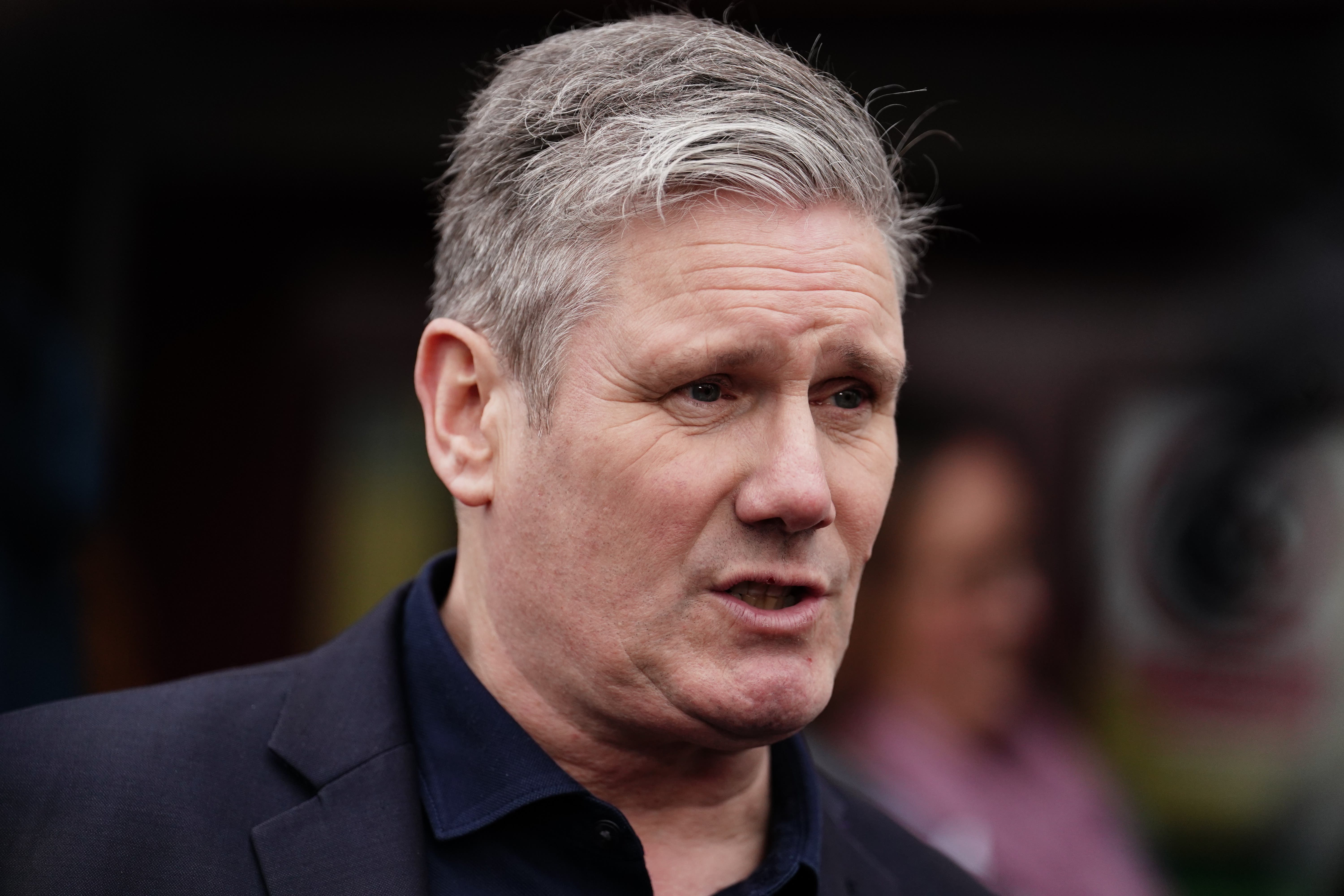Abolishing tuition fees always was the wrong policy. But Keir Starmer’s dizzying U-turns make Labour look lost
The Labour leader may be ending up with the right policies, but unless he can explain what he is doing and why he won’t change his mind back again later, doubts will remain, writes John Rentoul


I thought Keir Starmer had already abandoned the promise of “free” tuition for students. I wrote welcoming the change as the right decision in January. But, as with last week’s confirmation that he is opposed to proportional representation, these things often fail to hit the headlines until they are officially and explicitly set out.
“We are likely to move on from that commitment,” Starmer said on the radio this morning, asked about the promise to abolish tuition fees that he made during the Labour leadership campaign three-and-a-half years ago. Previously, he had only refused to restate the promise, and said that all spending commitments were under review.
Now he explained that we “find ourselves in a different financial situation”. Which is true. The public finances are obviously in a weaker state than they were in 2020, before coronavirus.
Not only that, but abolishing tuition fees always was the wrong policy. It would amount to a huge subsidy to middle-class graduates, who can expect to earn more than people who didn’t go to university.
So Blairites ought to be pleased that Starmer has turned out to be one of us after all. He even opposes proportional representation, a position so hardcore that Blair himself briefly departed from it – admittedly in pursuit of the equally hardcore goal of a merger with the Liberal Democrats – in the two years after the 1997 election.
And yet no one in the Labour Party is happy about Starmer’s U-turns. Has he ditched free tuition because it is temporarily unaffordable, or because it is the wrong priority in principle? His explanation today suggests that, if the public finances improve, he would want to spend a vast amount of non-graduates’ taxes to pay for it.
He made it worse by claiming that the “vast majority” of his leadership pledges still stood. That sounds as if he is trying to have it both ways – that one or two details have been dropped to buy off the Blairites while the essentials of his Corbynite platform for the leadership election still stand.
His 10 promises are still on Starmer’s website, and by my tally, he has ditched four of them. Abolition of tuition fees and abolition of universal credit were bundled into number two, “social justice”. Both gone. “Common ownership of rail, mail, energy and water”, number five. Gone. “Defend free movement as we leave the EU,” the lead item of number six, “defend migrants’ rights”: gone, by definition. And number one, “economic justice – increase income tax for the top 5 per cent of earners.” That has gone too.
He was asked about promise number one this morning and got himself in a muddle. He said Labour was against the “high-tax, low-growth model” of the economy promoted by the Conservatives. So he wasn’t in favour of higher income tax for the top 5 per cent any more. And yet the few small tax rises that Labour now proposes are all aimed at the top 5 per cent anyway: abolition of non-dom status, a tax on private school fees and a new tax on private equity funds. Starmer could have said he had found other ways for the richest to pay their share and so didn’t need to use income tax, but instead sounded like Liz Truss in complaining that the tax burden generally is too high.
What is most surprising, though, is the apparent absence of serious policy work designed to underpin the strategic decision to hug the Tory government as closely as possible on tax and spending plans. You would have thought the confirmation that tuition fees will remain would be made as part of an announcement of a Labour plan for student finance. But no, Labour cannot say whether it wants tuition fees to go up or down (and if down, how that will be paid for), or how it wants to restructure the student loan scheme.
It is the same in other policy areas. On Monday, Starmer said building new houses was a top priority for a Labour government. But it is not one of his five missions, so that suggests that “top” means “sixth”, which is “wanting it all at once everywhere” worthy of Boris Johnson.
Labour says at the same time that it wants to force local objectors to allow new houses to be built and that it wants to empower local people and local councils to decide on development for themselves. Again, cakeism.
It is all very well Starmer making the right decisions, on tuition fees, tax and proportional representation, but unless he can explain what he is doing and why he won’t change his mind back again later, he shouldn’t be surprised that neither his party nor the electorate are persuaded that he knows what he is doing.
Join our commenting forum
Join thought-provoking conversations, follow other Independent readers and see their replies
Comments
Bookmark popover
Removed from bookmarks